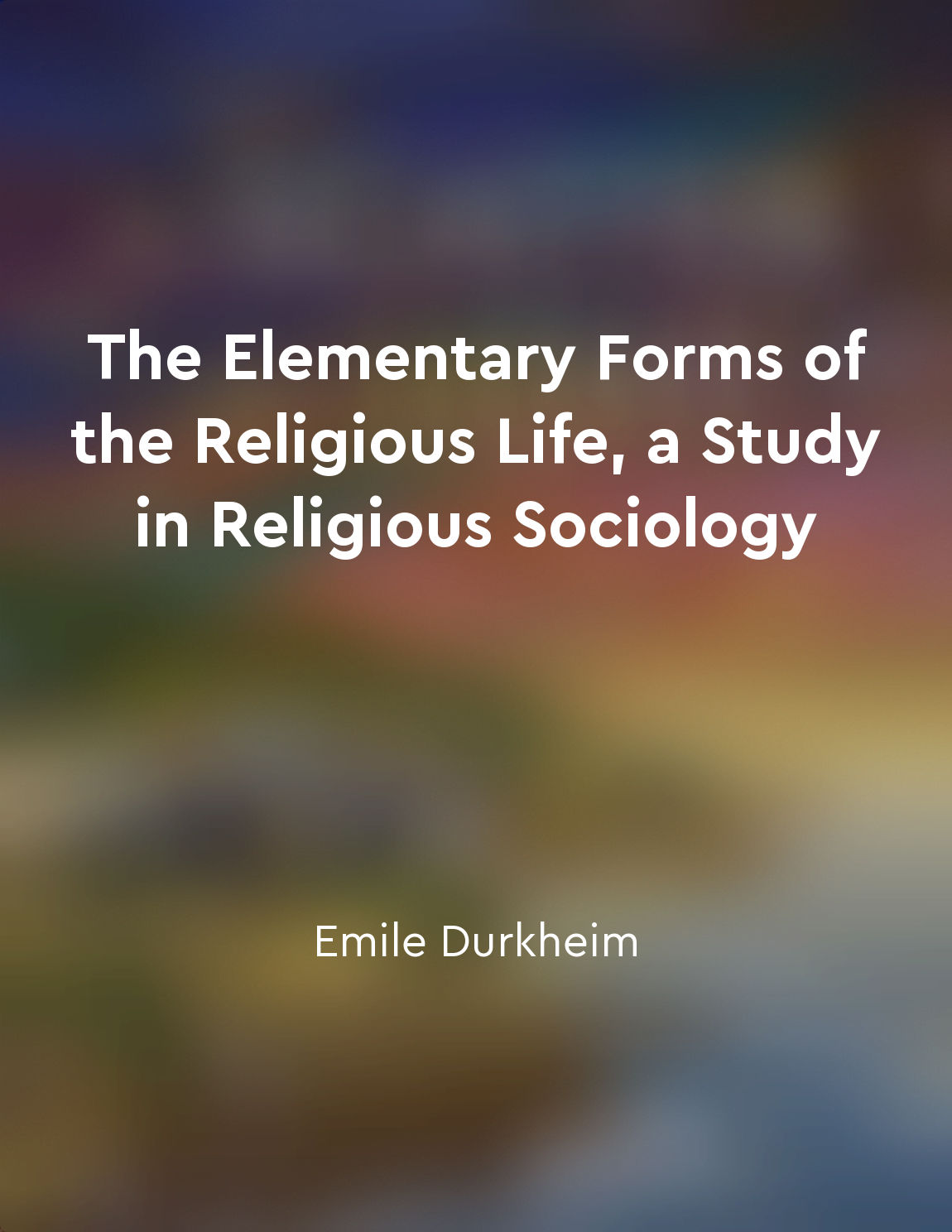Religious beliefs are expressions of collective consciousness from "summary" of The Elementary Forms of the Religious Life, a Study in Religious Sociology by Emile Durkheim
Religious beliefs are not individual creations, but rather products of the collective consciousness shared by members of a society. According to Durkheim, religious beliefs serve as a reflection of the collective values, norms, and ideals that bind individuals together within a social group. These beliefs are not arbitrary or personal, but are shaped by the collective experiences and perspectives of a community. In essence, religious beliefs are a manifestation of the shared consciousness that exists within a society. This collective consciousness is what gives rise to the rituals, symbols, and practices that form the basis of religious life. Through these shared beliefs and practices, individuals are able to connect with one another and reaffirm their common identity as members of a particular social group. Durkheim argues that religious beliefs play a crucial role in reinforcing social cohesion and solidarity. By participating in religious rituals and ceremonies, individuals are able to reaffirm their commitment to the group and strengthen their bonds with one another. In this sense, religion serves as a form of social glue that helps to maintain the stability and coherence of a society. Furthermore, Durkheim suggests that religious beliefs also serve as a source of moral guidance and ethical norms for members of a community. By adhering to the shared values and principles of their religious tradition, individuals are able to regulate their behavior and uphold the moral standards of their society. In this way, religious beliefs help to foster a sense of order and stability within a community.- Durkheim's theory of religious beliefs as expressions of collective consciousness highlights the interconnectedness between religion and society. By examining the ways in which religious beliefs reflect and reinforce the shared values and norms of a community, we can gain a deeper understanding of the role that religion plays in shaping social life.


